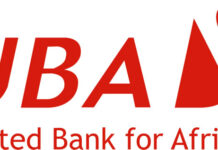BOI, IFC advocate collaborative financing to enhance Nigeria’s industrialisation agenda
The Bank of Industry (BOI) and the International Finance Corporation (IFC) have stressed the need for joint investment financing to drive infrastructural development in Nigeria’s industrialisation agenda.
They also stressed the need for enhanced access to funding for businesses, women and youth to support sustainable growth in the country.
They said this at the BOI – IFC conference on Monday in Lagos with the theme: “Empowering Futures: A Collaborative Journey in Financing Nigeria’s Industrial Sector”.
Mr Sergio Pimenta, Regional Vice President Africa, IFC, said IFC’s investment portfolio in Nigeria was the second largest in Africa.
Pimenta said the investment stood at two billion dollars, concentrated across trade finance, manufacturing, financial markets, and infrastructure.
He noted that the IFC’s strategic objectives in Nigeria were aimed at supporting diversified growth, enhancing inclusion, and promoting sustainability and job creation.
He said the corporation’s work fostered increased access to finance for Micro, Small, and Medium Enterprises (MSMEs) through financial intermediaries, supports agribusiness and manufacturing.
He suggested that to support sustainable growth in Nigeria, joint investment in MSME, industrialisation, agribusiness, energy, digitalisation and most importantly in youth and women was critical.
He added that the Nigerian financial sector had a key role to play in supporting trade, financial inclusion, and access to finance for MSMEs.
He noted that the aim was to increase access to finance for previously excluded individuals, and MSMEs.
Pimenta explained that to further strengthen its financial infrastructure, Nigeria recently embarked on legislative reforms to catalyse institutional and behavioural change among both formal lenders and borrowers across the country.
“Findings from the Nigerian Credit Infrastructure Reform showed that the country had made significant advances in strengthening its financial infrastructure in recent years.
“We at the IFC are confident that the reforms will unlock Nigeria’s strong potential,” he said.
He added that Nigeria’s rapidly growing population, projected to nearly double to 400 million by 2050, coupled with urbanisation.
This, he noted, underscored the urgent need for infrastructure development.
He, therefore, said that it was imperative to work together to close infrastructure gaps, which impeded private sector growth and overall economic development.
“One example is the housing sector. Although Nigeria possesses the entire key ingredients for a viable housing market, including a growing middle-class, millions of people in the country struggle to access affordable housing.
“Green buildings provide a $4.5 billion investment opportunity in Nigeria through 2025.
“Investing in housing stimulates growth in several areas, including the construction, manufacturing, and services sectors, and this contributes to job creation, inclusive growth, economic development, and shared prosperity.
“Improving access to finance for property developers and prospective homeowners can unlock opportunities in the housing sector, and we can explore solutions together”, he said.
He added that the IFC was working with financial institutions to develop and expand access to finance and mortgages for informal income earners and prospective homeowners.
“This includes developing a securitisation project with Nigerian financial institutions to help mobilise long-term capital for housing,” he said.
Similarly, Dr Olasupo Olusi, Managing Director, BOI, said the event was to collectively deliver a coherent, actionable plan towards advancing Nigeria’s industrial growth and development in line with President Bola Tinubu’s renewed hope agenda.
Olusi emphasised the need to focus on industrialisation as a pathway for economic diversification and how the financial sector could facilitate the building of a vibrant industrial sector.
This, he stressed, was important given that industrialisation was a key pillar of economic development and diversification, and that now was the perfect time to drive conversations.
He noted that Nigerians by nature were very entrepreneurial, and there was no paucity of good business ideas, but there existed a huge access to funding gap, though banks were on the lookout for bankable business opportunities.
“There is a huge access to funding gap, particularly within the Small and Medium Enterprises (SME) segment and the panel session seeks to identify products that will help close the gap and mitigate risks.
“The session, “unlocking sustainable funding for industrialisation”, tackles the critical issue of unlocking the deep pools of sustainable funds and mobilising same to achieve industrial development.
“Worthy of note is the IFC’s presence which underscores its strong commitment to supporting the development of Africa’s largest economy, even as the event signifies the strong bond that exists between the BOI and IFC,” he said. (NAN























